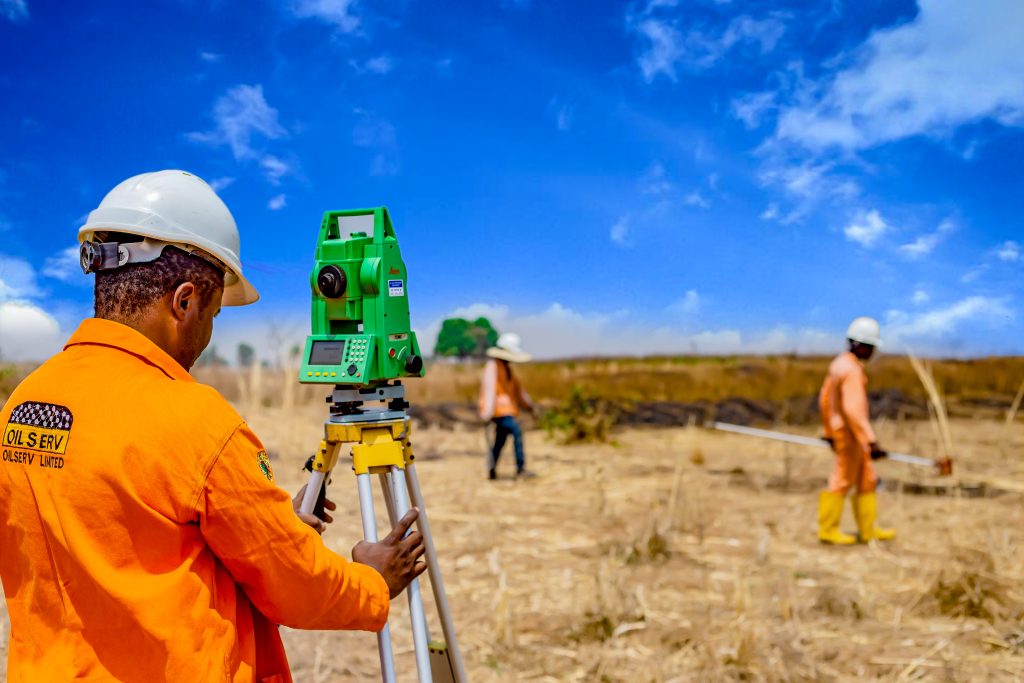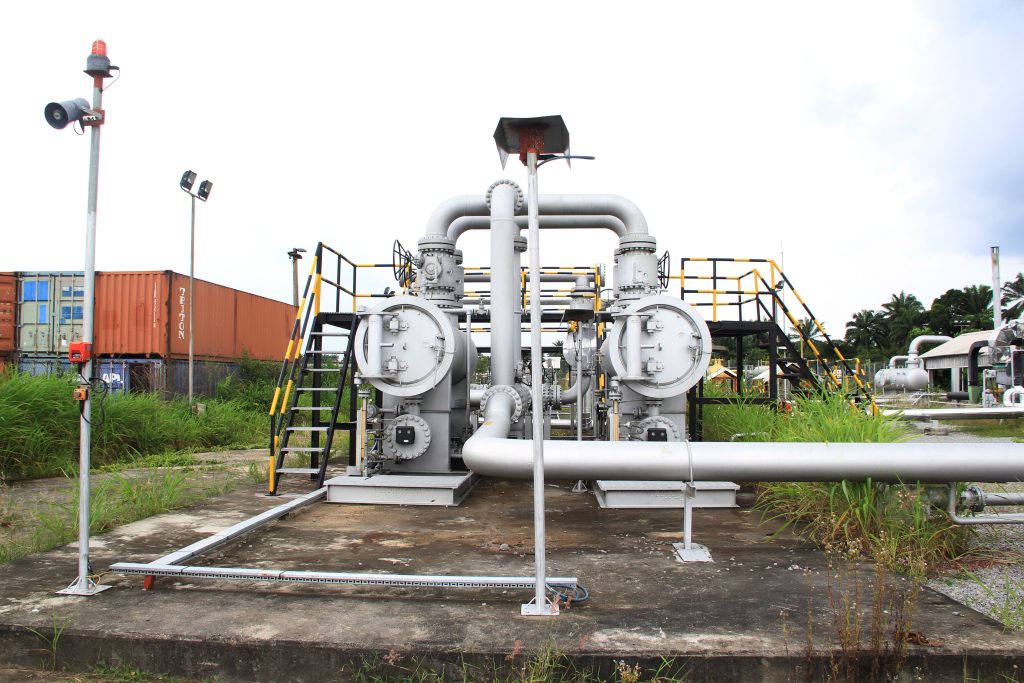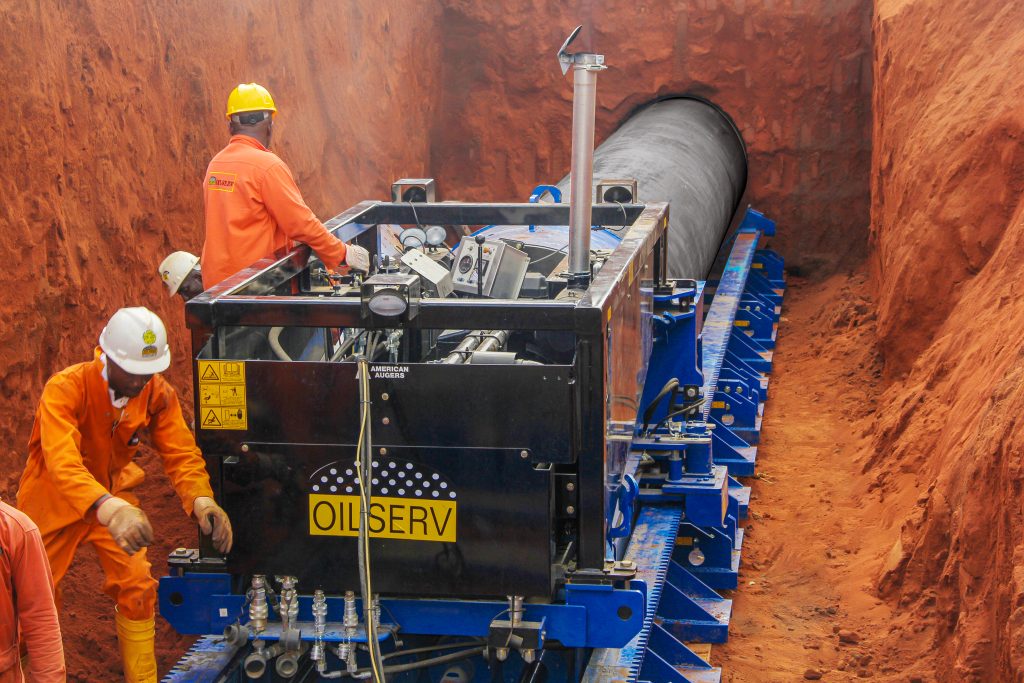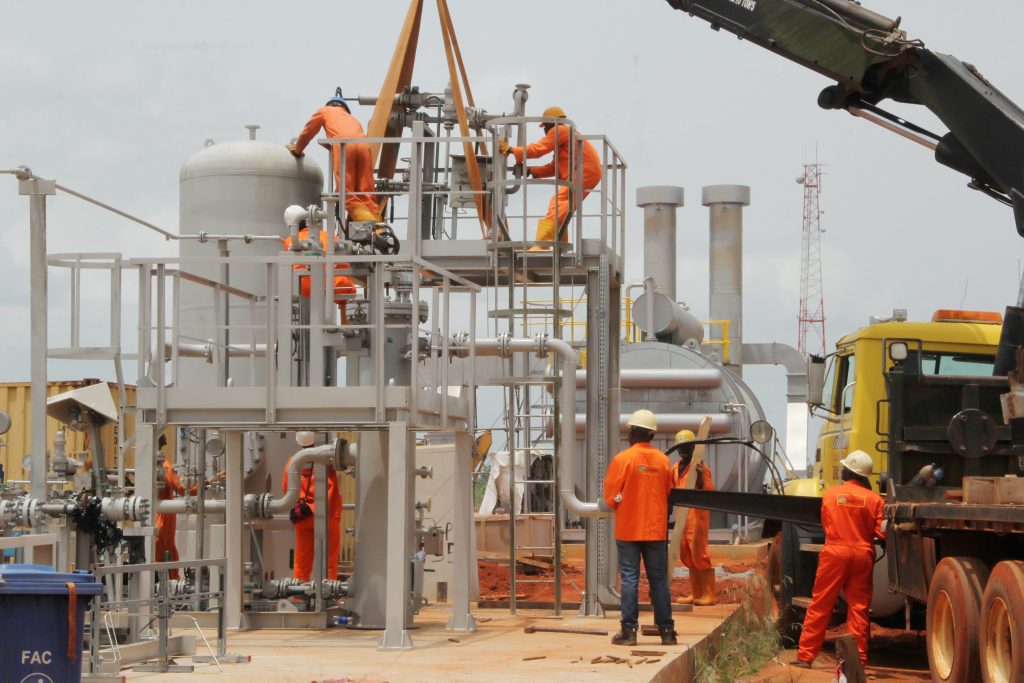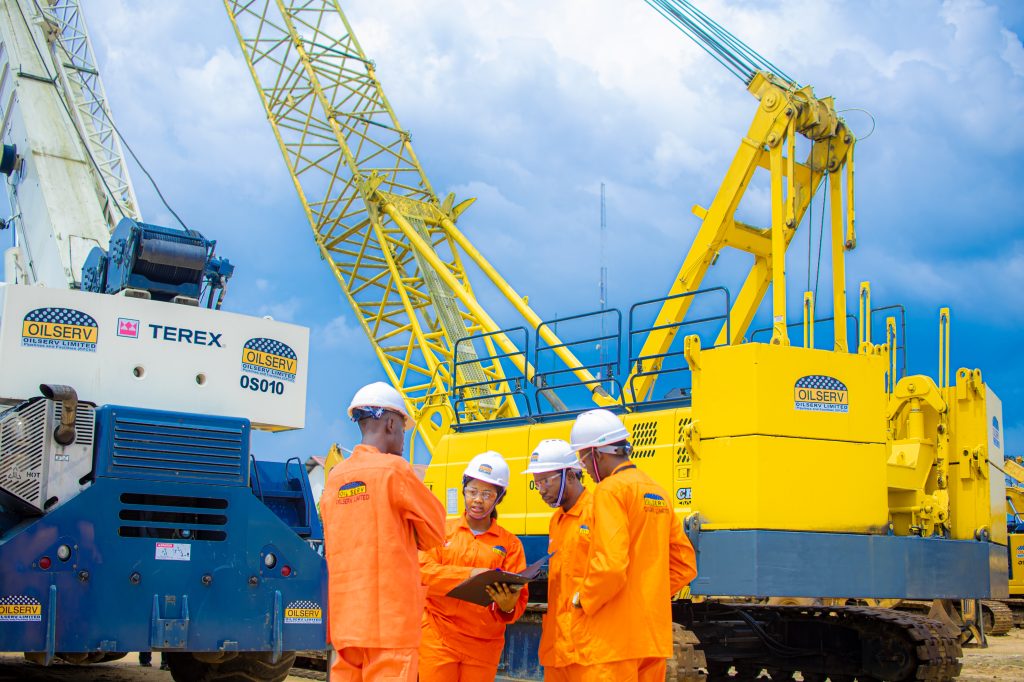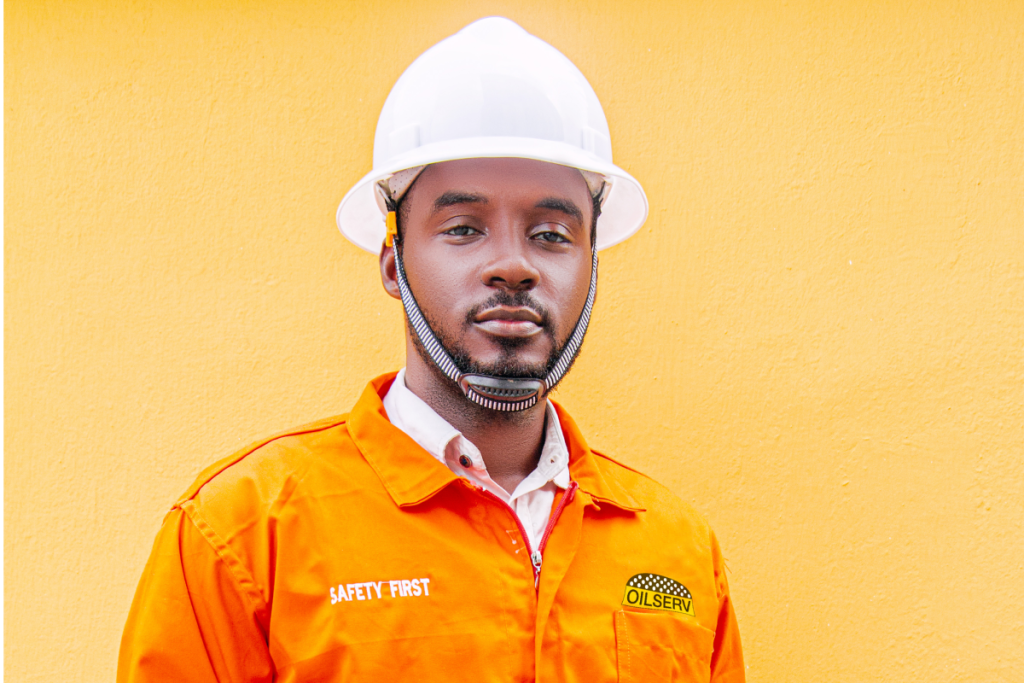According to an announcement made on Tuesday, December 3rd, 2024, by Engr. Felix Omatsola Ogbe, Executive Secretary of the Nigerian Content Development and Monitoring Board (NCDMB), Nigerian content performance in the oil and gas sector reached 56 percent in 2024.
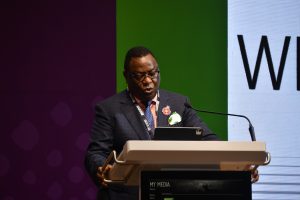
Top government officials, including the Deputy Governor of Bayelsa State, Senator Lawrence Ewhrudjakpo, the Minister of State for Petroleum Resources (Oil), Senator Heineken Lokpobiri, and the Minister of State for Petroleum Resources (Gas), Rt. Hon. Ekperikpe Ekpo, were present at the 13th Practical Nigerian Content (PNC) Conference and Exhibition, which was held at the NCDMB Conference Centre in Yenagoa, Bayelsa State.
The secretary general of the African Petroleum Producers Organisation (APPO), Dr. Umar Farouk Ibrahim, the chairperson of the House of Representatives Committee on Nigerian Content Development and Monitoring, Senator Natasha Akpoti-Uduaghan, the chairperson of the Senate Committee on Local Content, and the chief executives of both domestic and foreign oil and gas companies as well as operating and regulatory bodies in the petroleum sector were among the other prominent figures in attendance.
Based on ongoing projects in the upstream, midstream, and downstream sectors of the oil and gas industry, the Monitoring and Evaluation Directorate of the NCDMB determines the Nigerian Content performance level annually.
The Nigerian Content component of the annual budget and the overall amounts spent on projects are combined to create the data. The information is taken from statutory reports that businesses provide, and its accuracy is checked during Nigerian Content performance evaluations and workshops. The data must match the Nigerian Content Compliance Certificates (NCCC) for projects that the Board has approved.
As of December 2022 and 2023, the percentage of Nigerian content was 54%, a substantial increase from 26% in 2016 prior to the implementation of the Nigerian Content 10-year strategic roadmap. According to the Board’s 10-Year Strategic Road Map (2017-2027), the most recent increase is a major step towards its goal of 70% Nigerian content by 2027.
The head of NCDMB further disclosed that 402 Nigerian Content Compliance Certificates (NCCCs) had been granted and that 312 Nigerian Content Plans had been approved by the Board to date. He also revealed that the contracting cycle has been shortened to six months and that the Board’s touchpoints have been lowered from nine to five due to the new Project Certification and Authorisation Directorate (PCAD) rules.
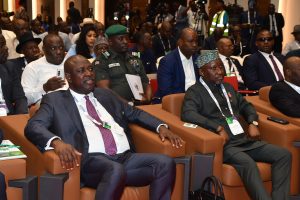
An agreement on the Revised Nigerian Content Community Contractors Financing Scheme was signed by Engineer Ogbe and a Bank of Industry (BoI) official at the PNC Forum. The Fund tackles a significant obstacle that local contractors encounter when trying to obtain much-needed funding for contracts that are given to them by oil and gas firms.
N15 billion has been set aside for the fund under the new product document, and Ogbe alluded to the fact that “the single obligor limit has been increased from N20 million to N100 million.”
“New career paths and economic opportunities are being opened for local communities through the Nigerian Content Academy, which was recently established by the Board to prepare Nigerians through a range of courses that cover every aspect of the oil and gas industry, from upstream exploration to downstream processing,” he said. As part of the Forum’s commemorative events, the Ministers unveiled the Academy.
In order to directly support the local content drive, the Executive Secretary provided information about the Back-to-the-Creeks Initiative, which aims to bring the benefits of Nigerian content to local communities. In particular, the initiative develops basic educational facilities in communities and equips youth in host communities with the skills necessary to meet industry demands.
During his speech, Rt. Hon. Ekperikpe Ekpo, Minister of State for Petroleum Resources (Gas), praised NCDMB for methodically coordinating its local content policy objectives with the gas development agenda of the Federal Government.
The Minister cited several crucial areas where the Board’s strategic intervention has greatly benefited the nation, including the NCDMB’s support for compressed natural gas (CNG) projects, modular gas processing plants, liquefied petroleum gas (LPG) cylinder manufacturing plants, LPG depots, LPG terminals, LPG storage and bottling plants, gas gathering facilities, smart gas and detector alarm services.
With a combined capacity of 600 million standard cubic feet per day, he revealed that “two critical gas projects were completed in the last 12 months,” namely SEPLAT Assa North and Shell Petroleum Development Company (SPDC) Ohaji South. In the same time frame, Xenergy Limited and the NCDMB jointly completed the 300 MMscfd Kwale Gas Gathering (KGG) Hub and Injection Facility.
As the globe transitions to renewable energy, he reiterated that “gas will be the mainstay of Nigeria’s energy shift” and that the government is “giving local businesses a chance to engage in gas distribution, processing, and power generation.”
He stated that the theme of the PNC Forum, “Defining the Next Frontier for Nigerian Content Implementation,” is “a call to action and a reaffirmation of Nigeria’s commitment to leveraging our local capabilities to drive energy security, economic growth, and environmental sustainability.”
He tasked NCDMB and DMG Events Limited, the Forum’s organisers, with making sure the gathering serves as “a spur for practical ideas that move our country closer to a promising and sustainable energy future.”
Speaking at the occasion as well, Senator Heineken Lokpobiri, Minister of State for Petroleum Resources (Oil), praised the NCDMB for hosting the Forum and for the noteworthy achievements it has made since its founding in 2010. Other nations want to visit Nigeria to learn from its success story with local content, he disclosed, no matter where he has visited in Africa for events pertaining to oil and gas.
He stated there is no need to be concerned about the country’s foreign oil and gas firms’ (IOCs’) divestitures because local operating companies have filled the voids and greatly expanded the nation’s share of the sector. According to him, the impacted IOCs have only shifted their activities and investments from onshore to deep offshore, without leaving the nation.
In order for the nation to maintain the progress it has made thus far, the Minister called on industry participants to think strategically, pointing out that “quality, standards, and capacity developed have to be sustained.”
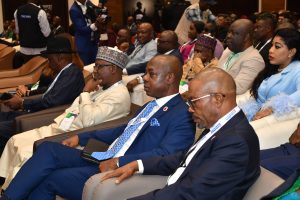
Regarding ways to address the fall in financing for oil and gas projects in Africa following the global de-emphasis on fossil fuels, Dr. Umar Farouk Ibrahim, Secretary General of the African Petroleum Producers Organisation (APPO), stated that the Africa Energy Bank (AEB) would begin operations in the second quarter of 2025, provided that the Establishment Agreement is signed and ratified by the necessary number of nations. Abuja is to serve as the location of its headquarters.
Senator Lawrence Ewhrudjakpo, the deputy governor of Bayelsa State, praised the NCDMB and industry participants for organising the event and for their cooperation, which has resulted in notable advancements in the petroleum sector.
However, he reminded the industry captains that Bayelsa State should have a train constructed within its borders as it provides almost 60% of the gas feedstock for the Nigeria Liquefied Natural Gas (NLNG) Project, Bonny, which has advanced to Train 7.
The Forum’s theme was “designed to spark forward-looking and transformative discussions,” according to Mrs. Wemimo Oyelana, Country Director (Nigeria) and Portfolio Director (Africa), DMG Nigeria Limited, who gave the organizer’s welcome address. She also stated that “as the Nigerian energy sector continues to evolve, it is critical to address the next steps in advancing Nigerian Content.”
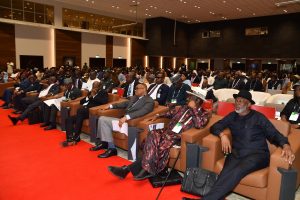 The group chief executive of the Nigerian National Petroleum Company Limited (NNPCL), Mallam Mele Kyari; the chief executive of the Nigerian Upstream Petroleum Regulatory Commission (NUPRC), Engr. Gbenga Komolafe; his Nigerian Midstream and Downstream Petroleum Regulatory Authority (NMDPRA), Engr. Farouk Ahmed; the chairperson of the Senate Committee on Local Content, Senator Natasha Akpoti-Uduaghan; her counterpart in the House of Representatives, Hon. Boma Goodhead; and the minister of power, Mr. Adebayo Adelabu.
The group chief executive of the Nigerian National Petroleum Company Limited (NNPCL), Mallam Mele Kyari; the chief executive of the Nigerian Upstream Petroleum Regulatory Commission (NUPRC), Engr. Gbenga Komolafe; his Nigerian Midstream and Downstream Petroleum Regulatory Authority (NMDPRA), Engr. Farouk Ahmed; the chairperson of the Senate Committee on Local Content, Senator Natasha Akpoti-Uduaghan; her counterpart in the House of Representatives, Hon. Boma Goodhead; and the minister of power, Mr. Adebayo Adelabu.

